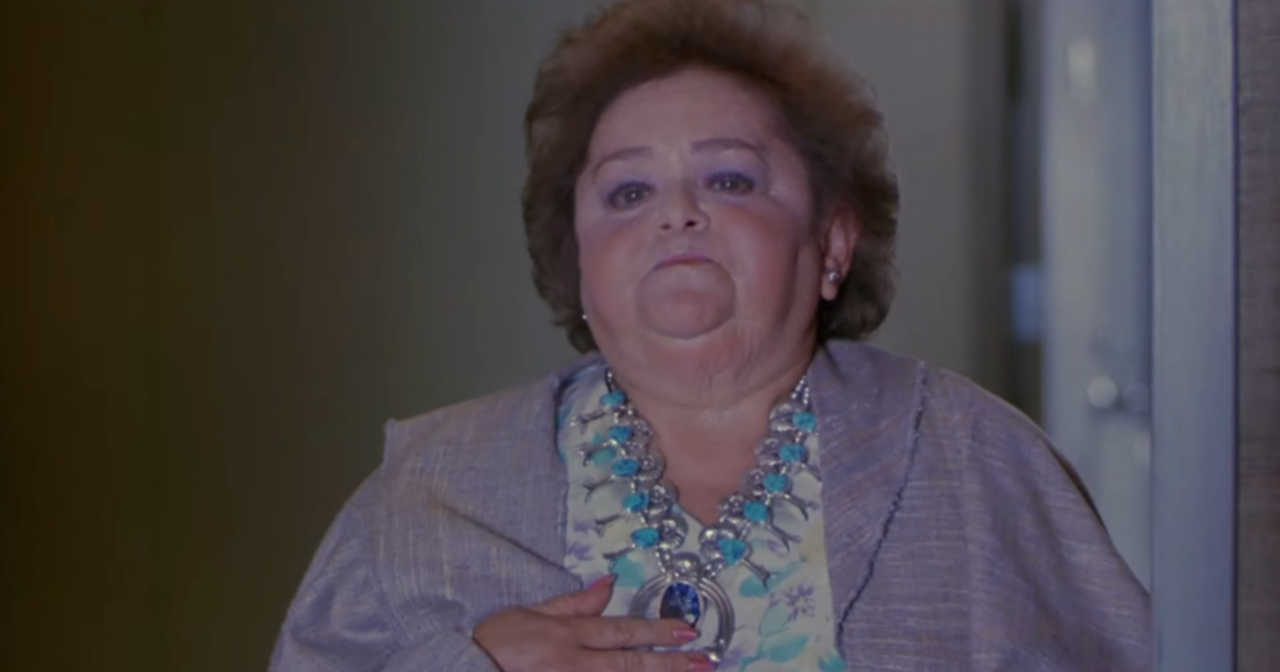Poltergeist III (1988) | Review
Last year, I decided that since I had never seen any of the sequels of one of the best big-budget horror movies of all time, I should probably at least see them once to have an opinion. If you read my review of Poltergeist II, then you’d know it was not a positive one. In fact, it was so much of a negative opinion that I didn’t bother to continue my Polter-quest until this year and finally watched the third film in the franchise to see if it got any better or only got worse.
Image: MGM
Pros
Interesting shots with the use of mirrors
A more unique setting
Concepts and ideas that had some potential
Cons
Effects are much less impressive than in previous films
The scares are pretty weak
Everything is wrapped up with arbitrary conveniences
Biggest jerk of the film doesn’t get a good death
Plot & Thoughts
Carol Anne (Heather O’Rourke), the small girl from the previous films, has moved into the high-rise apartment of her aunt Patricia (Nancy Allen) and Uncle Bruce (Tom Skerritt). Bruce runs (owns?) the apartment building, which—similar to Gremlins 2—seems to have a lot more going on in it than just living quarters for people, as Patricia is running an art show within the building as well. In addition to her aunt and uncle, Bruce’s daughter, Donna (Lara Flynn Boyle), lives with her and plays the part of a typical teenage girl who would rather party than babysit. At least there’s no malice from her, as is often the case in these scenarios.
Within a very short amount of time from the movie's starting, Carol Anne begins seeing the figure of the maniacal priest Kane (Nathan Davis), who was the villain of the previous film. Kane is mostly shown through reflections in mirrors and windows, and we rarely see his face, as opposed to last time when he got a lot more screen time. Julian Black’s portrayal of the character was one of the better parts of Poltergeist II, but he died of cancer around the time of its release. Perhaps they didn’t want to focus on his character as much this time out of respect? It wouldn’t be the first time they made a decision around that awkward sort of real-life situation in the franchise like they did with Dominique Dunne, but I digress. Regardless of the reason, Kane is back and seeking Carol Anne once more for the same reasons. At least, we assume as much because the movie doesn’t really bother explaining this detail again. It’s got more important things to focus on.
Image: MGM
“What was Poltergeist III focusing on or trying to accomplish?” you might ask. To see how many times we can say “Carol Anne” in a single movie must have been one goal because they say it a lot. Another might be how much you should hate your therapist and your child’s therapist because they’re represented in this film by an egotistical moronic character who overlooks reality for the sake of trying to explain everything with his psychobabble nonsense. To be honest, I’m not sure what the movie’s intention was entirely with the plot that it has, but I did appreciate one aspect. Unlike in previous films where it was Carol Anne’s parents, who were determined to protect her at all costs, this time it’s her aunt and uncle who barely know her. Both seem to care about her, with Bruce seeming to be more than happy to care for her, despite no blood relation. Patricia, however, seems to think the girl is a little creepy, and the undercurrent of selfish disdain for the child is at least something that the movie takes advantage of later. I don’t think it sticks the landing with that scenario because it feels pretty forced by the time it’s used, but it's an interesting concept for the third entry in the film, nonetheless.
I honestly have far less to say about Poltergeist III than I do about its predecessor. I don’t think it’s a step up, but I also don’t think it’s a step down from the level of quality established in the previous film. There are some interesting shots using mirrors, and I like the new setting with the new family dynamic at play to shake things up a bit. But the scares are not good, and there are a lot of unnecessary characters with filler scenes in the middle. It’s not a good movie or an interesting one. In fact, the most interesting thing about the movie is that on imdb.com, it has two award nominations:
Academy of Science Fiction, Fantasy & Horror Films, USA 1990 - Nominee - Saturn Award - Best Supporting Actress - Zelda Rubinstein
Razzie Awards 1989 - Nominee - Razzie Award - Worst Supporting Actress - Zelda Rubinstein
Image: MGM
Clearly, people had some diverging opinions regarding this movie. Do you know what most people will agree is a good ghost horror movie? The original Poltergeist. If you were like me and you never saw the sequels, it might be best if you learn from my mistake and keep it that way.
TL;DR (Conclusion)
Poltergeist III is not as offensively bad as Poltergeist II. Not because it’s a better movie, just because the bar had already been lowered significantly. As a result, you have a mostly uninteresting movie that has some potentially interesting scenarios and concepts but fails to achieve them successfully. If you have already seen II but not III, this film won’t hurt. If you have yet to see any of the sequels or the remake, I recommend sticking to the original, as ignorance can be bliss.












